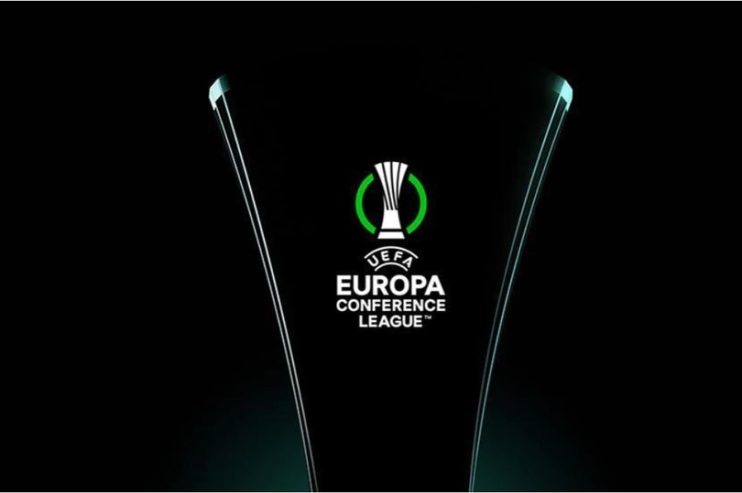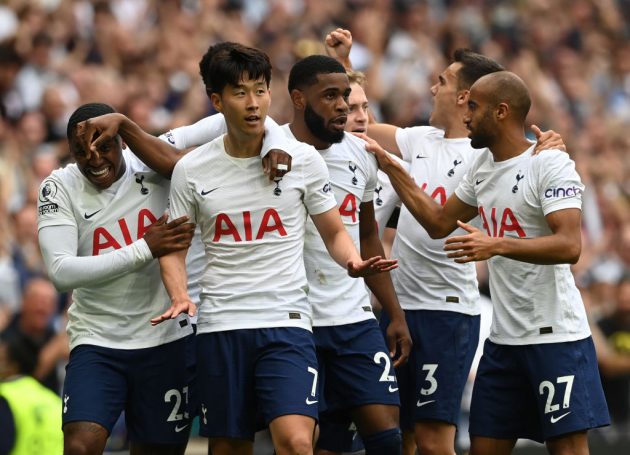What is the Europa Conference League, why is it happening and how will it work? Uefa’s new third club competition explained

This season heralds the start of a new, third European competition for club football: the Europa Conference League.
England’s role representatives are Tottenham Hotspur, who enter the competition at the play-off stage and play their first match this evening.
But why has governing body Uefa created the new competition and how will it work? Read on for all you need to know about the Europa Conference League.
What is the point of the Europa Conference League?
English football fans may wonder why the club game needs a third European club competition, given the Europa League was already widely derided for its obscure entrants and endless fixtures.
But Uefa had another audience and set of stakeholders in mind when it devised the Europa Conference League: the continent’s less glamorous nations and teams.
This new tournament is designed to give clubs and countries who struggle to reach the group stage of the Champions League and Europa League a taste of European football.
And it may also improve the standing of the Europa League, which is to be streamlined – more on this below.
Uefa says that the Europa Conference League will mean that 34 of its 55 member nations feature in the group stage of one of its three competitions.
“The new Uefa club competition makes Uefa’s club competitions more inclusive than ever before,” said president Aleksander Ceferin. “There will be more matches for more clubs, with more associations represented in the group stages.”
What does the winner of the Europa Conference League get?
The winner will qualify for the following season’s Europa League, unless they have qualified for the Champions League through domestic competition.
The Europa Conference League champions will bypass the Europa League qualifying rounds and go straight in at the group stage.
This format follows the promotion system already in place between the Europa League and Champions League, whereby the winners of the former get a golden ticket to the top competition.
Who qualifies for the Europa Conference League?
The Europa Conference League is a hotchpotch of cup winners and domestic league runners-up from Europe’s smaller nations, teams that finished outside the Europa League places in the top competitions, such as the Premier League, and clubs who get knocked out of the qualifying rounds of the Champions League and Europa League.
If that sounds complicated, that’s because it is. Uefa has a breakdown of who makes it into the competition and how here.

England has just one representative in the Europa Conference League, which goes to the team that wins the EFL Cup.
But because EFL Cup winners Manchester City reached the Champions League instead, the place went to the team that finished seventh in the Premier League, Tottenham.
What is the format of the competition?
The Europa Conference League will play out much like the Champions League, only with an extra round between the group stage and last 16 (and worse teams).
The group stage will feature 32 teams divided into eight groups of four, with the winners progressing straight to the last 16.
However, group runners-up will have to play off against eight teams who drop out of the Europa League after its group stage.
And before you get to the group stage there are three qualifying rounds and a play-off round – which is where Tottenham come in – to whittle down the entrants.
When are the games played, are they on TV, and when is the final?
Like the Europa League, fixtures in Uefa’s new competition will take place on a Thursday.
They will mostly be split between two kick-off times, 5:45pm and 8pm UK time (6:45pm and 9pm CET), but there will be some exceptions.
BT Sport has the exclusive rights to show Europa Conference League games in the UK.
The final is due to take place in Tirana, Albania, on 25 May, a week after the Europa League final.
How will the new competition affect the Europa League?
The introduction of the Europa Conference League should be good for the Europa League, making it less of a slog and higher in quality.
Instead of featuring 48 teams, the Europa League group stage will now by a 32-team affair, split into eight groups of four – like Uefa’s other two tournaments.
And the Europa Conference League will now take some of the weaker teams that would previously have entered the Europa League, improving – in theory – the standard of the latter.
The Champions League is unaffected.
